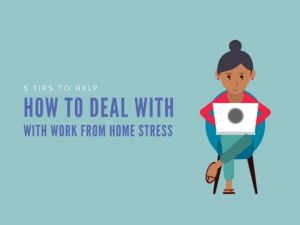Career vs Family: Is It Possible To Have Both?

When women give interviews about their achievements, we see sexist questions like this pop up all the time. Instead of asking how they managed to portray such a difficult role, what inspired them to write their bestselling novel, or how they managed to overcome the grueling training to become an astronaut, reporters will ask “how did you balance your career and parenthood?”
It would be a valid question if reporters asked men the same question. No one seems to wonder how men balance fatherhood with their great achievements. So why are we asking women?
We’re asking because it’s assumed that the majority of the caregiving responsibilities default to the maternal figure. So how does she manage it all? How does she raise children and be fully present in her career? We’re asking because we want the answer. We’re asking because we want it all, too.
So in the question of career vs family, how do we balance it all? Is it even possible?
Who This Article is For
This article is not about women who want to be stay-at-home moms. When it’s what a woman wants, choosing the career of being a stay-at-home caretaker is a very empowering decision. The answer to the question of career vs family and how to handle work-life balance is already answered because their career is their family. They can have the best of both worlds.
This article is also not about single mothers. Single mothers who pursue careers are incredibly hardworking, commendable women that should be applauded. However, the tactics and theory behind this article are based on a relationship between a woman and her partner. If you’re a single mother reading this article and you have someone in your life that helps you care for your children, such as a parent or grandparent, this conversation can also apply to you.
This article is for women who want a career in a professional industry but also want to experience motherhood. The ones who want to use their degrees, start their own businesses, rise up the ranks in the office, pursue jobs in the world outside the home, and when the day is done, come home to a partner and children.
The Myths of the 40 Hour Work Week
Here’s a well-kept secret that the working world doesn’t want you to know.
The 40-hour workweek wasn’t built for you.
The 40-hour workweek was created for men who came home to a cleaned house, a home-cooked meal, and tended-to children. The 40-hour workweek was made for men who had a stay-at-home wife.
So first, if you’re feeling guilty that there isn’t enough time in a day, toss that guilt out the window, because the odds are already stacked against you. Because of this, some companies have discovered that abolishing hour-based work leads to higher productivity.
This structure isn’t even made for someone who lives alone without children. This structure assumes that there’s another person who stays home and handles the cooking, grocery shopping, cleaning, laundry, errands, bills, and all the other mundane tasks that are just an unavoidable part of daily life. So if you feel like you make it to the end of the week and you haven’t gotten everything done and still haven’t had a moment to relax, that’s exactly why.
So if you and your partner are both working 40 hours a week, where does all the time required to care for the kids and the house come from? Those tasks don’t just go away.
They become split between the two partners. A lot of people will hire others to take care of some of these tasks. That way, the partners can take tasks like laundry, picking up the kids, or cleaning the house off their plates. Even small things like ordering takeout remove some responsibilities from the list of things to do.
But whatever’s left needs to be divided somehow.
In most heterosexual households of working families, the woman is expected to cover these tasks while anything men do is seen as a kind gesture or perk. Men are applauded for doing the dishes but when women do it, it’s just something routine, something that’s supposed to get done. This toxic expectation is especially seen in the way people perceive men doing basic fatherly tasks.
It’s not “babysitting” for a man to take care of the kids. It’s just a father taking care of his kids. No one says that a woman is “babysitting” when she takes her children to the park.
Small linguistic choices like this reveal long-term, underlying messages of misogyny; women are expected to mothers, men are applauded when they father.
Unpacking the Career vs. Family Conundrum
So if a mother wants to work full time outside of the home, how does she do it? How is she supposed to have her cake and eat it, too?
Well, first we need to change the way we frame the problem. It isn’t career vs family. It’s a question of how do I fit my career and my family into my life? How do I choose to spend the 168 hours I have in my week?
Life is all about choices. It isn’t your kids vs your career. It’s making small choices between your home life and work-life; this week, do you attend an important meeting or go to your daughter’s recital? Do you help your son with his homework or do you prepare for an upcoming presentation?
Some weeks you’ll need to favor work. Other weeks, you’ll favor your children. Hopefully, your time should average out into a healthy balance between the two.
And here’s how you manage it; you have a partner who helps.
That pile of tasks for the week needs to be divided up, and you should not be the one crossing most of them off. The person you are with is your partner; the name itself reminds you to work together.
Sometimes, people see their partner as an adversary. It’s you vs them.
This thinking cannot coexist with a healthy relationship. It needs to be you and your partner versus the problem.
When you’re facing a difficult work week, your partner needs to step up and cover tasks you don’t have time for. You’ll do the same when they’re having a difficult time. Just like your work and your children, your time should average out so that you both are doing the same amount of housework and childcare.
Because if you both are working a 40 hour work week, why should you be doing all the work at home?
Friendly Advice
Suneera Madhani, CEO and founder of Fattmerchant, has some advice to give to entrepreneurs who are also mothers.
She says, “There are always going to be stereotypes about being a boss and being a mom, and you are always going to have to face them. My advice to mom entrepreneurs is to surround yourself with a solid, unwavering network of support…Also, use the lessons learned in motherhood to help you become a better business owner. There are more similarities within the two jobs than you would think.”
The takeaway? Make sure your partner is a key component to your unwavering network of support when you’re balancing career vs family.
Author, Artist, Photographer.
Sarah Margaret is an artist who expresses her love for feminism, equality, and justice through a variety of mediums: photography, filmmaking, poetry, illustration, song, acting, and of course, writing.
She owns Still Poetry Photography, a company that showcases her passion for capturing poetic moments in time. Instead of poetry in motion, she captures visual poetry in fractions of a second, making cherished keepsakes of unforgettable moments.
She is the artist behind the Still Poetry Etsy shop, which houses her illustrations and bespoke, handmade items. She is the author of intricacies are just cracks in the wall, a narrative poetry anthology that follows a young woman discovering herself as she emerges from an abusive relationship.






Responses